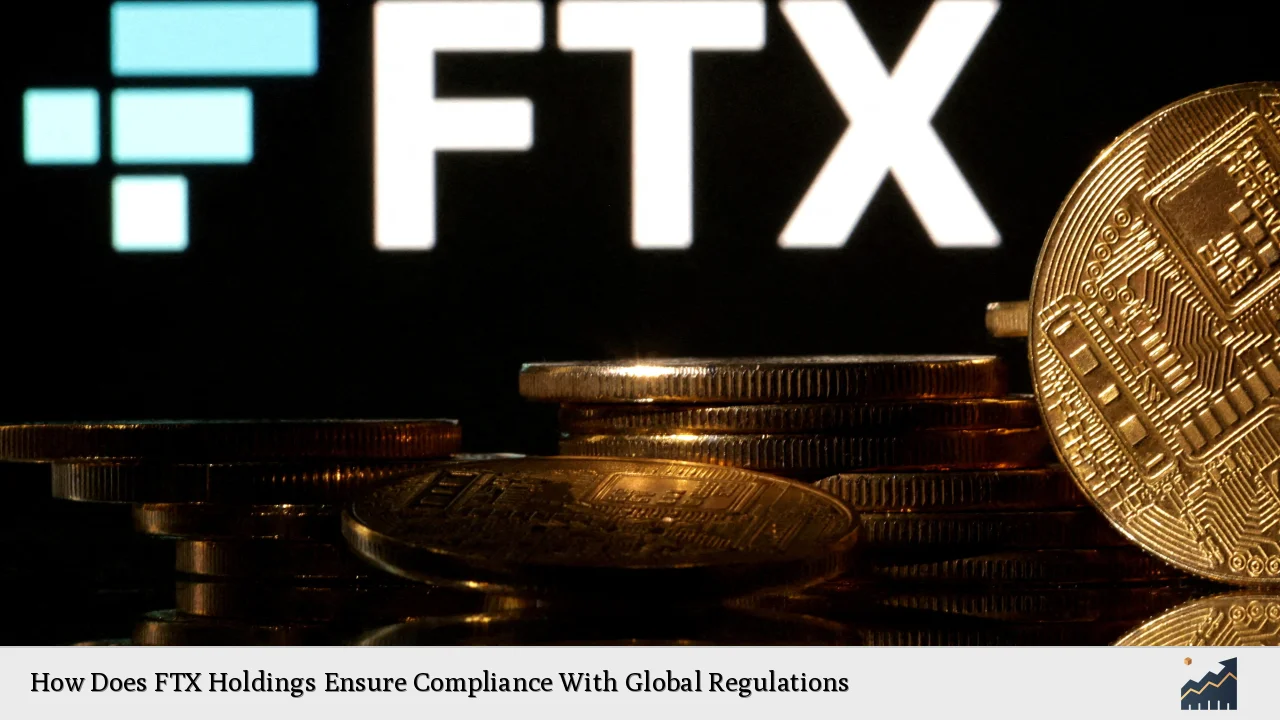FTX Holdings, once a leading cryptocurrency exchange, faced significant scrutiny following its collapse in November 2022. The events surrounding FTX have prompted a global reevaluation of regulatory frameworks governing cryptocurrencies. To ensure compliance with global regulations, FTX Holdings implemented various strategies aimed at aligning with the diverse regulatory landscapes across different jurisdictions. This article provides a comprehensive analysis of how FTX sought to ensure compliance, the market trends influencing these strategies, and the lessons learned from its operational failures.
| Key Concept | Description/Impact |
|---|---|
| Global Regulatory Landscape | FTX aimed to navigate varying regulations across jurisdictions, including obtaining licenses in the US, EU, Dubai, Australia, and Japan. |
| Licensing and Compliance Framework | FTX developed a licensing strategy to operate legally in multiple regions, focusing on compliance with local laws and international standards. |
| Risk Management Policies | The exchange implemented risk management frameworks to mitigate financial risks, although these were insufficient at the time of its collapse. |
| Consumer Protection Measures | FTX promoted consumer protection through transparent operations and compliance with anti-money laundering (AML) regulations. |
| Corporate Governance Standards | The company aimed to establish robust corporate governance practices to enhance accountability and oversight. |
Market Analysis and Trends
The cryptocurrency market has witnessed rapid growth and volatility, leading to increased regulatory scrutiny. Following the FTX collapse, regulators worldwide are pushing for stricter compliance measures. Key trends include:
- Increased Regulatory Frameworks: Governments are developing comprehensive regulations for cryptocurrencies. For instance, the European Union introduced the Markets in Crypto-Assets Regulation (MiCA), requiring all crypto service providers to obtain licenses by 2026.
- Focus on Consumer Protection: There is a growing emphasis on protecting investors from fraud and ensuring that exchanges maintain adequate security measures for customer funds.
- Global Harmonization of Regulations: As cryptocurrencies operate across borders, there is an ongoing effort to harmonize regulations globally. This includes collaboration among regulatory bodies to create consistent standards.
Implementation Strategies
FTX’s approach to compliance involved several strategic initiatives:
- Licensing Across Jurisdictions: FTX sought regulatory licenses in key markets to operate legally. This included obtaining licenses from authorities in the US (CFTC), EU (ESMA), and Japan (FSA). Each jurisdiction has unique requirements that necessitated tailored compliance strategies.
- Adopting Best Practices: The exchange aimed to implement industry best practices for risk management and corporate governance. This included establishing internal controls and compliance teams dedicated to monitoring regulatory changes.
- Engagement with Regulators: FTX engaged proactively with regulators to understand compliance requirements better and adapt its operations accordingly. This included participating in consultations regarding new regulations.
Risk Considerations
Despite its efforts, FTX’s risk management policies were inadequate:
- Lack of Robust Internal Controls: The absence of effective internal controls contributed significantly to FTX’s downfall. Reports indicated that there were no third-party audits or sufficient oversight mechanisms in place.
- Mismanagement of Customer Funds: Allegations arose that FTX misused customer deposits for risky investments without proper disclosure. This highlighted severe gaps in its risk management framework.
- Regulatory Non-compliance: The failure to adhere to existing regulations led to legal repercussions and ultimately contributed to the exchange’s bankruptcy.
Regulatory Aspects
The regulatory environment for cryptocurrencies is evolving rapidly:
- Diverse Regulatory Approaches: Different countries have adopted various approaches towards cryptocurrency regulation. For instance, Japan mandates strict segregation of customer funds and requires exchanges to hold assets in cold storage.
- Emerging Global Standards: Organizations like the Financial Action Task Force (FATF) are working towards establishing global standards for cryptocurrency transactions, focusing on AML measures and consumer protection.
- Increased Enforcement Actions: Following the FTX collapse, regulators have ramped up enforcement actions against non-compliant exchanges, emphasizing the need for transparency and accountability.
Future Outlook
The future of cryptocurrency regulation will likely be shaped by lessons learned from the FTX incident:
- Stronger Compliance Frameworks: Expect more stringent compliance requirements as regulators seek to prevent similar failures. Companies will need robust governance structures and risk management policies.
- Technological Solutions for Compliance: The use of technology in monitoring transactions for compliance purposes will become more prevalent. Automated systems can help track suspicious activities effectively.
- Investor Education Initiatives: As regulations tighten, there will be a push for improved investor education on risks associated with cryptocurrency investments.
Frequently Asked Questions About How Does FTX Holdings Ensure Compliance With Global Regulations
- What led to FTX’s collapse?
The collapse was primarily due to inadequate risk management policies, lack of internal controls, and misuse of customer funds. - How does FTX ensure compliance with different regulations?
FTX sought licenses in various jurisdictions and aimed to adopt best practices in corporate governance and risk management. - What are the key regulatory frameworks affecting cryptocurrencies?
The EU’s MiCA regulation and various national laws focusing on AML and consumer protection are significant frameworks currently shaping the industry. - What role do regulators play post-FTX?
Regulators are increasing scrutiny on cryptocurrency exchanges, implementing stricter compliance measures to protect investors from fraud. - How can investors protect themselves in the crypto market?
Investors should conduct thorough research on exchanges’ regulatory status, security measures, and overall reputation before investing. - What future trends can we expect in cryptocurrency regulation?
Expect stronger compliance frameworks, increased use of technology for monitoring transactions, and enhanced investor education initiatives. - Are there any global efforts to standardize crypto regulations?
Yes, organizations like FATF are working towards establishing global standards for AML measures and consumer protection in the crypto space. - What should companies learn from FTX’s experience?
Companies should prioritize strong governance structures, effective risk management policies, and proactive engagement with regulators.
The events surrounding FTX Holdings underscore the critical need for robust regulatory frameworks within the cryptocurrency sector. As global regulations evolve, both investors and companies must adapt to ensure compliance while safeguarding their interests against potential risks associated with this dynamic market.

